Mike Santoro spoke of his experience living with mental illness and dealing with stigma on Feb. 12 in a talk hosted by the Concordia Undergraduate Psychology Association (CUPA) for Concordia’s Mental Health week.
Santoro spoke of how he has been living a full and happy life despite being diagnosed with schizoaffective disorder for over 25 years. He began the presentation with a short documentary, entitled The 80/20 Project, created by himself and Daniel Gervais. The documentary showed his personal coping skills, as well as re-enactments of his history with mental illness. The meaning behind the title is simple: recovery from mental illness should depend 20 per cent on medication, and 80 per cent on other coping mechanisms.
During his talk, Santoro spoke of three steps that should be taken when helping people with mental health issues: listen, support, refer.
He explained that simply being there for someone, and listening to them, could have a very big impact on their recovery.
The next steps, support and refer, are also crucial.
“Don’t take everything on your shoulders if you are helping someone. Once you’ve supported them trust grows, once you have listened and you get that relationship, you refer [to professionals],” Santoro said. “Don’t get too involved unless you are a trained specialist. Refer them to what they need. Always follow up on the referral.”
After talking about these steps, Santoro spoke about how important his friends were to him. He explained that he had always been very open about his condition, and that the friends who had stuck by him throughout had become a part of his support group.
“If [my friends] saw me running naked down the street they wouldn’t think ‘Mike is crazy,’ they would think ‘something must be wrong, he needs our help,’” Santoro said.
Santoro said that he refused to accept that he had a mental illness for eight years. Because of that, he also refused to acknowledge that he needed help.
“I remember being in an isolation room at the hospital tied to a bed and coming to a realization. I started to think they might be right, maybe something is wrong with me. That is when I started to open up and accept the help around me, and things started to change. Before that nothing was really happening in my life,” Santoro said.
Santoro has lost track of the amount of times he has been at the hospital, often for months at a time.
“It was not easy to accept that I had mental health issues because I knew there would be labels, that people would treat me differently,” Santoro said.
Santoro spoke of his personal experiences with the stigma surrounding mental health. Once, for example, he was getting x-rays, and a nurse asked him what medications he was taking. When he told the nurse about his anti-psychotic medication, her demeanor towards him changed right away. Santoro said she seemed shocked and scared.
“I could feel that her stress level had gone down the second I left the room. That is the kind of thing people [living with mental health issues] deal with all the time,” Santoro said.
“When you ask someone with mental issues, they will say it’s harder to deal with all the stigma around mental health issues than it is to deal with the disease itself, Santoro said. “Excuse the expression, but that’s pretty crazy.”
According to Santoro, more and more people are talking about mental illness.
“When I started giving these talks, no one was talking about mental illness. Now, more people are talking about it, but [change] comes from us,” Santoro said.
Santoro gave some advice to Concordia students, telling them that they should not be afraid of talking about how they feel. He told them to use Concordia’s resources, and to talk to friends. He also reminded everyone of the importance of prevention.
“If you see a change in a classmate or friend, don’t be afraid of talking to people about it. Don’t be afraid to bring up the subject. Its important to care about the people around you, and to be open about it,” Santoro said.
Although attendance was low, those who were present took part in the talk, asking many questions and sharing their personal histories with mental illness, as well as their own coping mechanisms.
“…If its one person we can educate than its one person that can go out to the people they know and educate them in turn,” Janice La Giorgia, CUPA President, said. “The chances are we all know someone who has depression or anxiety, since they are very prevalent…the presentation was enlightening. It really gives you a new perspective of mental health issues.”
Santoro reminded the audience that mental illness does not define a person.
“[Mental illness] doesn’t mean your life is over. You can still live a good life,” Santoro said. “You will have to work a little harder, but if you stick to it and do what you have to do, you can advance and get to where you want to be.”
To learn more about Mike Santoro visit www.mikesstory.com.
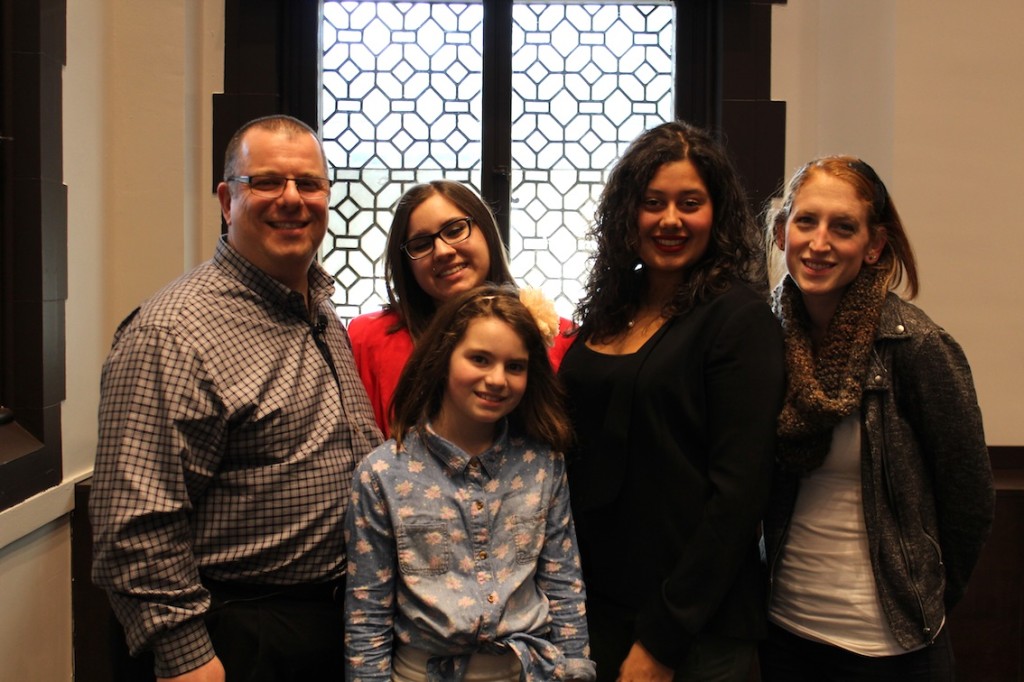

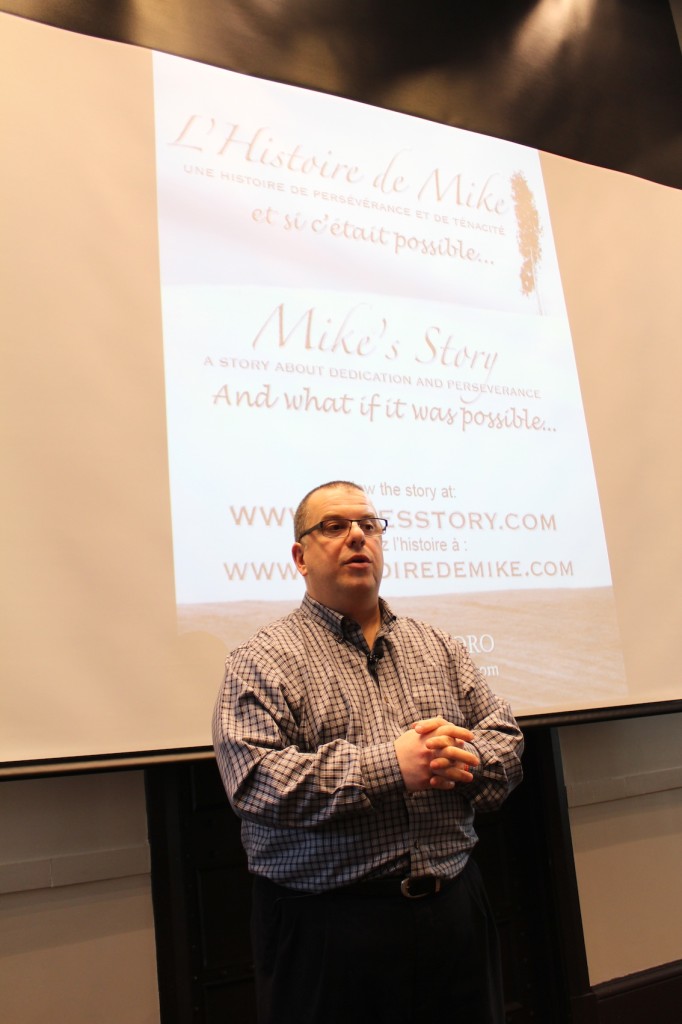
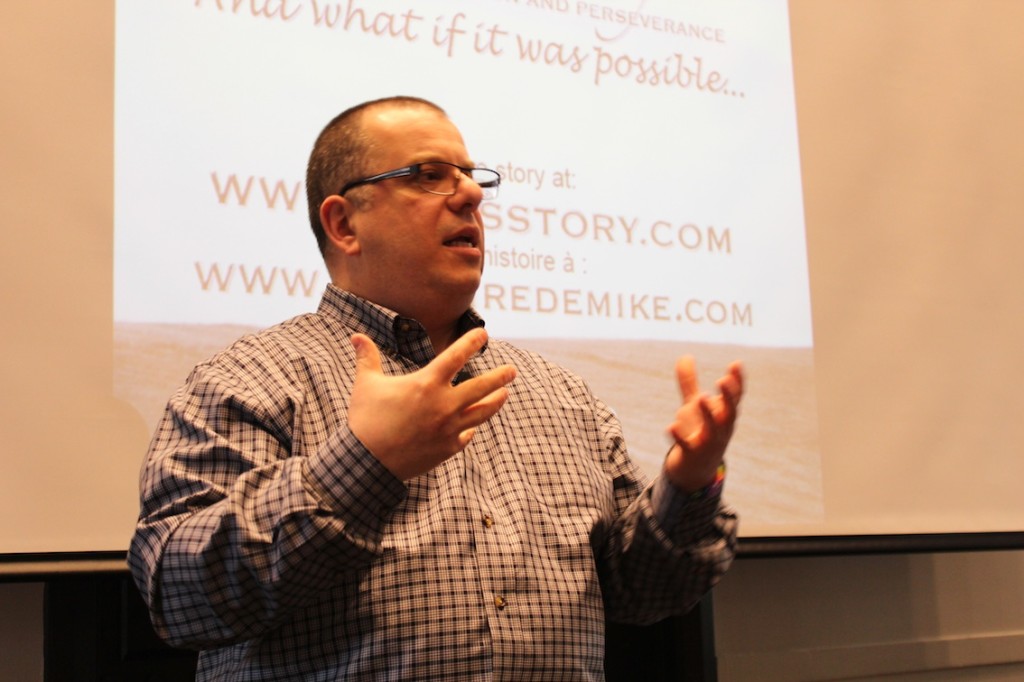
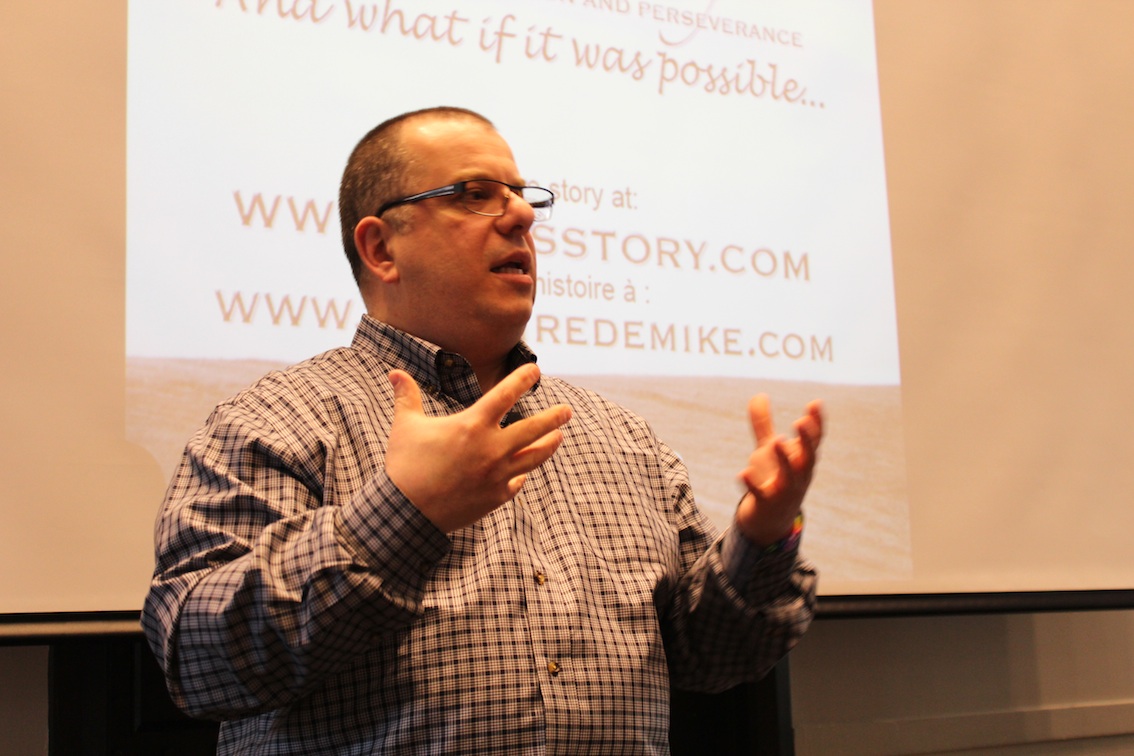
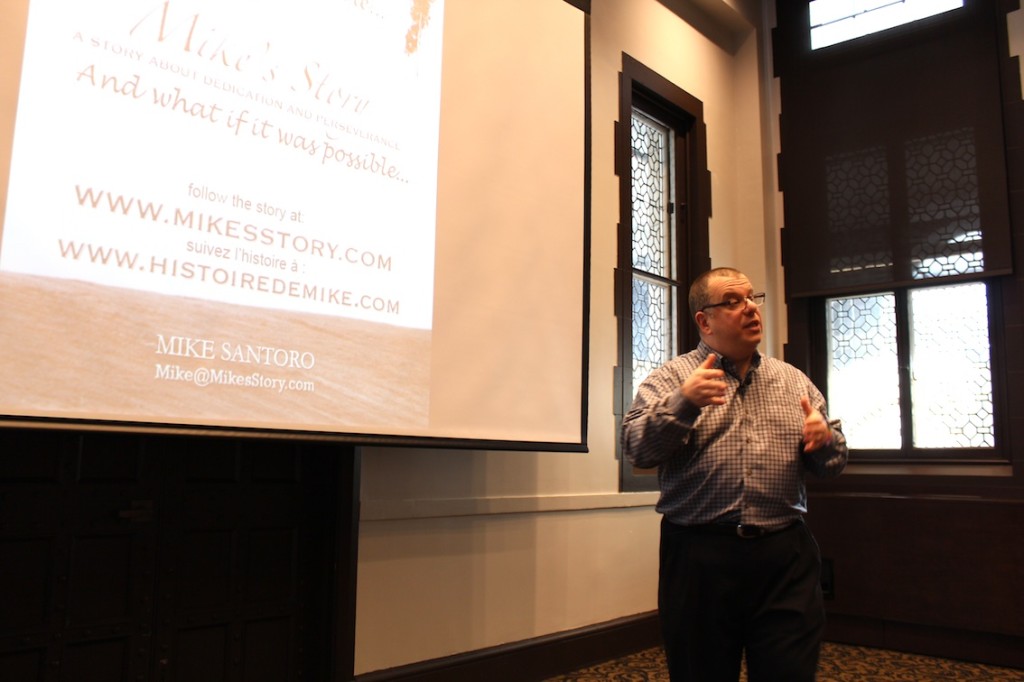




Congratulations Mike! Do you know Bill MacPhee? He’s doing pretty much the same thing as you except in his case it’s schizophrenia, and he also publishes magazines about some mental illnesses : SZMAGAZINE, BPMAGAZINE, and ANCHOR MAGAZINE. Check them out. I have a link on my Facebook page.